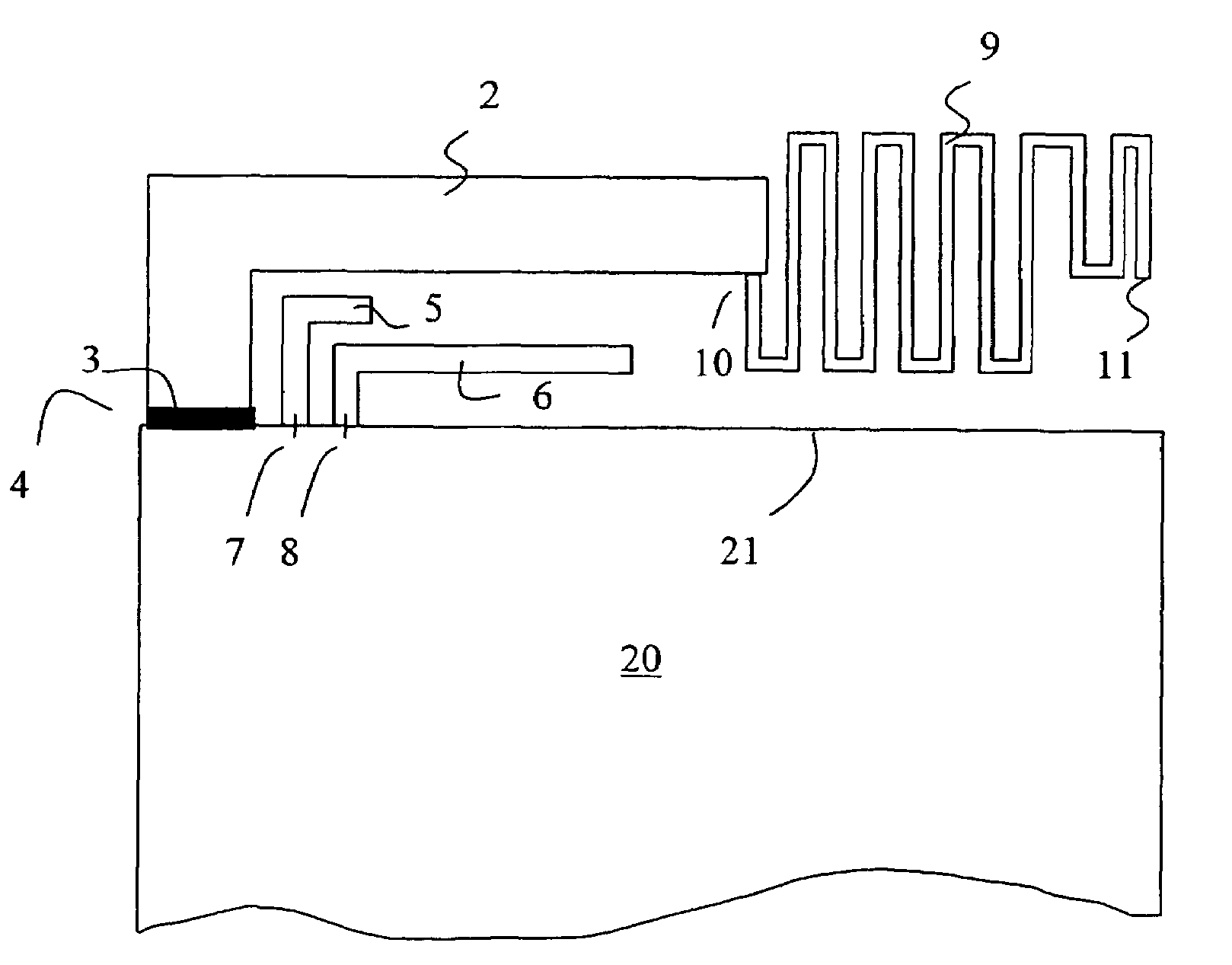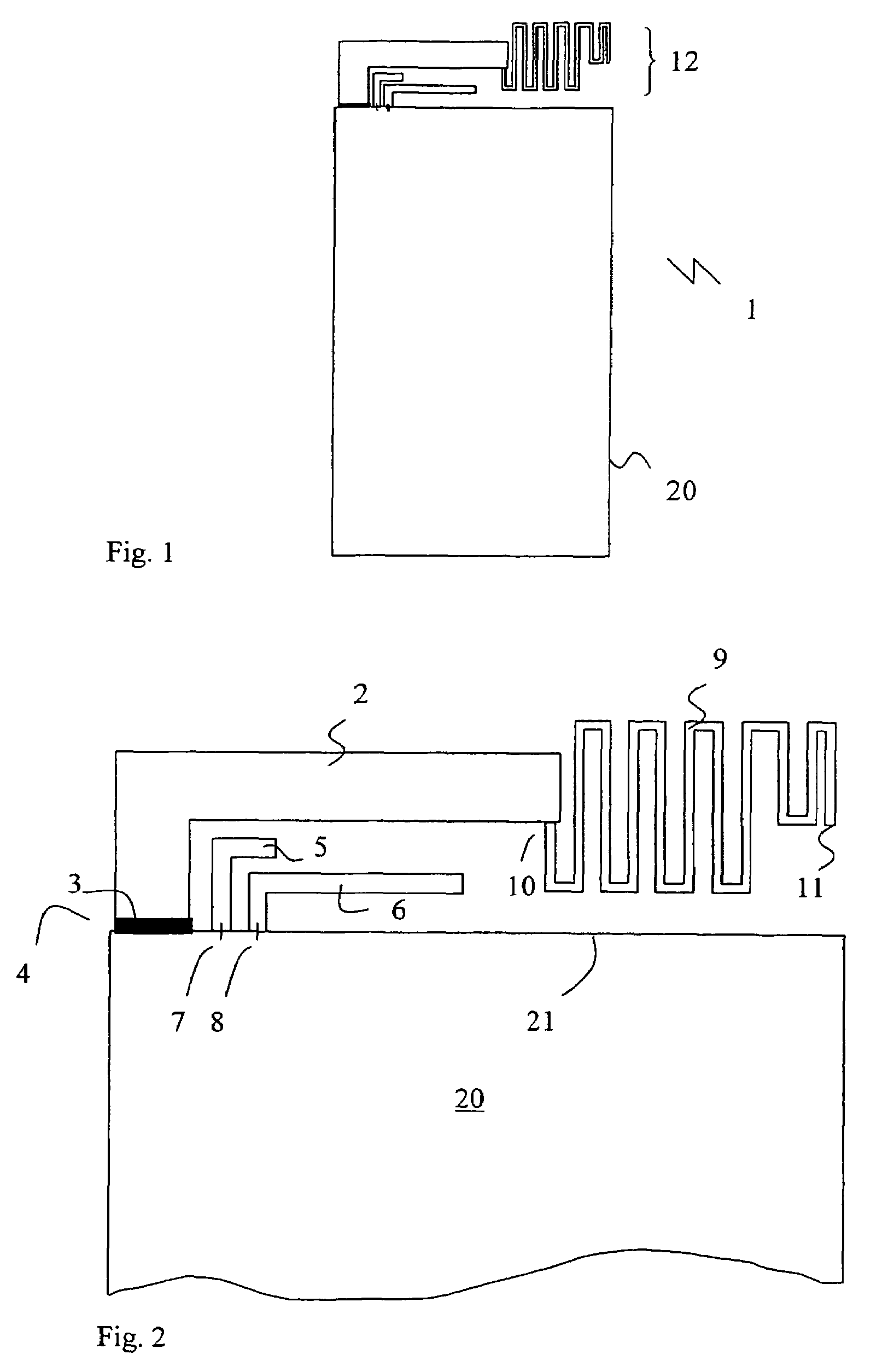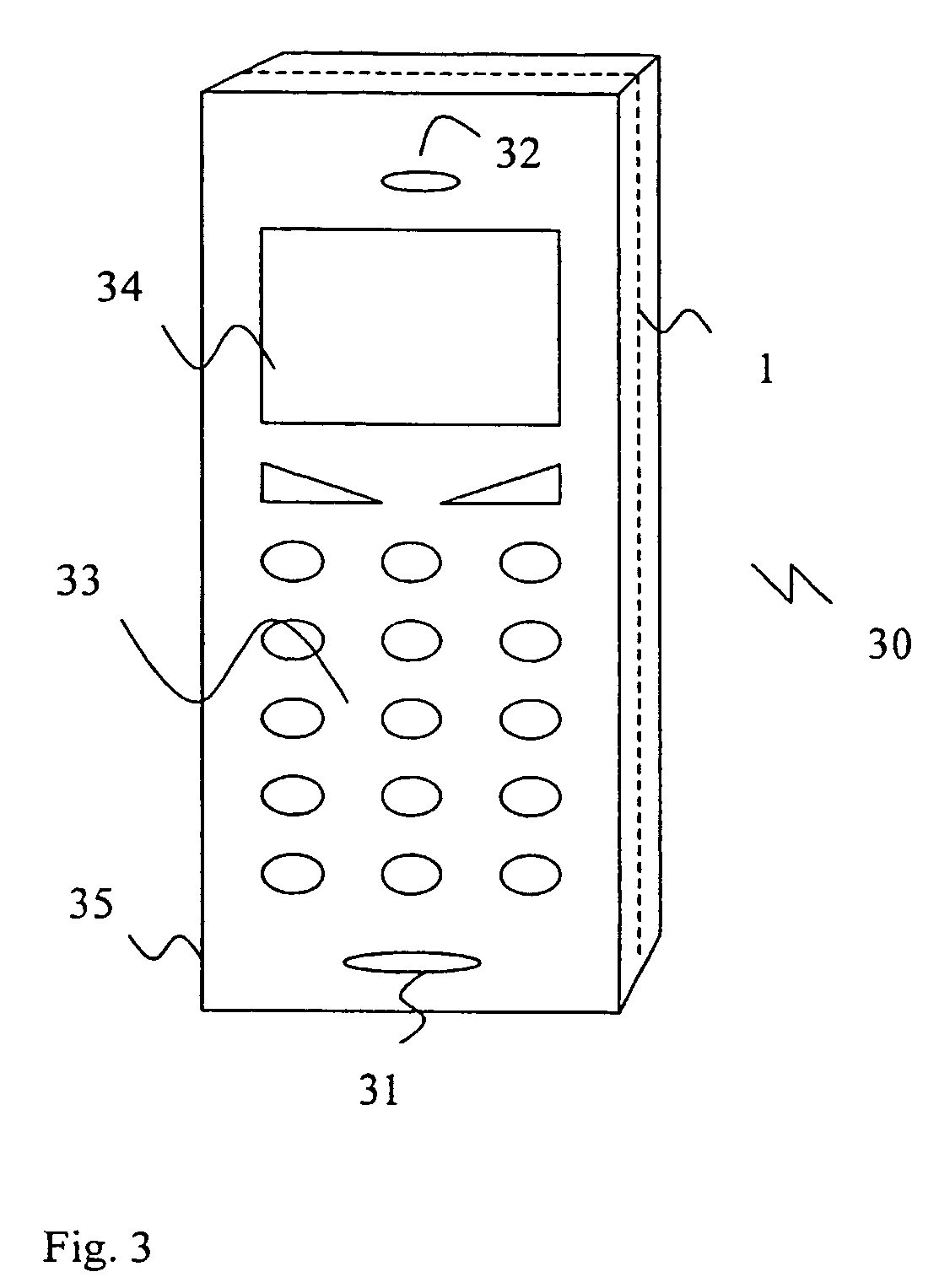Multiband planar built-in radio antenna with inverted-L main and parasitic radiators
a built-in antenna and antenna technology, applied in the direction of antenna earthings, substantially flat resonant elements, resonant antennas, etc., can solve the problems of limiting the height of the pifa antenna, the inability to use cellular communications, and the narrow bandwidth of this design for cellular communication
- Summary
- Abstract
- Description
- Claims
- Application Information
AI Technical Summary
Benefits of technology
Problems solved by technology
Method used
Image
Examples
Embodiment Construction
[0034]The present description refers to radio terminals as a device in which to implement a radio antenna design according to the present invention. The term radio terminal includes all mobile equipment devised for radio communication with a radio station, which radio station also may be mobile terminal or e.g. a stationary base station. Consequently, the term radio terminal includes mobile telephones, pagers, communicators, electronic organizers, smartphones, PDA:s (Personal Digital Assistants), vehicle-mounted radio communication devices, or the like, as well as portable laptop computers devised for wireless communication in e.g. a WLAN (Wireless Local Area Network). Furthermore, since the antenna as such is suitable for but not restricted to mobile use, the term radio terminal should also be understood as to include any stationary device arranged for radio communication, such as e.g. desktop computers, printers, fax machines and so on, devised to operate with radio communication ...
PUM
 Login to View More
Login to View More Abstract
Description
Claims
Application Information
 Login to View More
Login to View More - R&D
- Intellectual Property
- Life Sciences
- Materials
- Tech Scout
- Unparalleled Data Quality
- Higher Quality Content
- 60% Fewer Hallucinations
Browse by: Latest US Patents, China's latest patents, Technical Efficacy Thesaurus, Application Domain, Technology Topic, Popular Technical Reports.
© 2025 PatSnap. All rights reserved.Legal|Privacy policy|Modern Slavery Act Transparency Statement|Sitemap|About US| Contact US: help@patsnap.com



